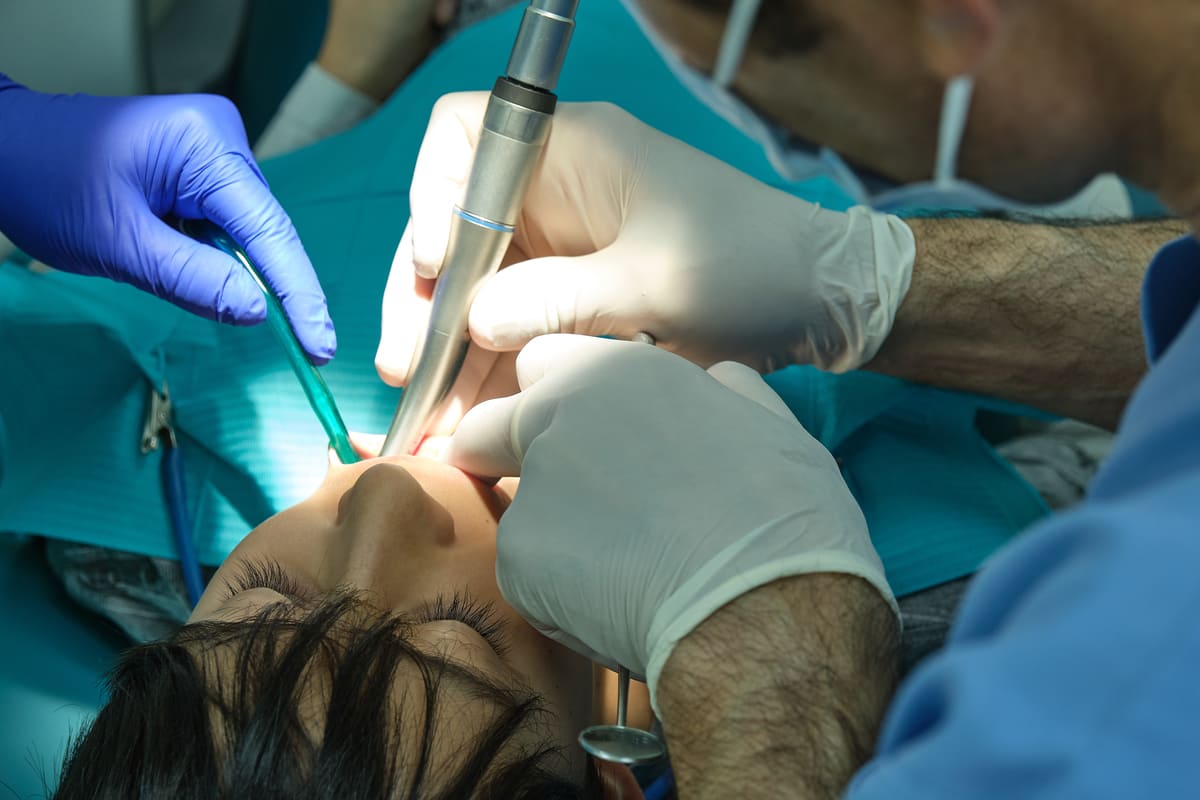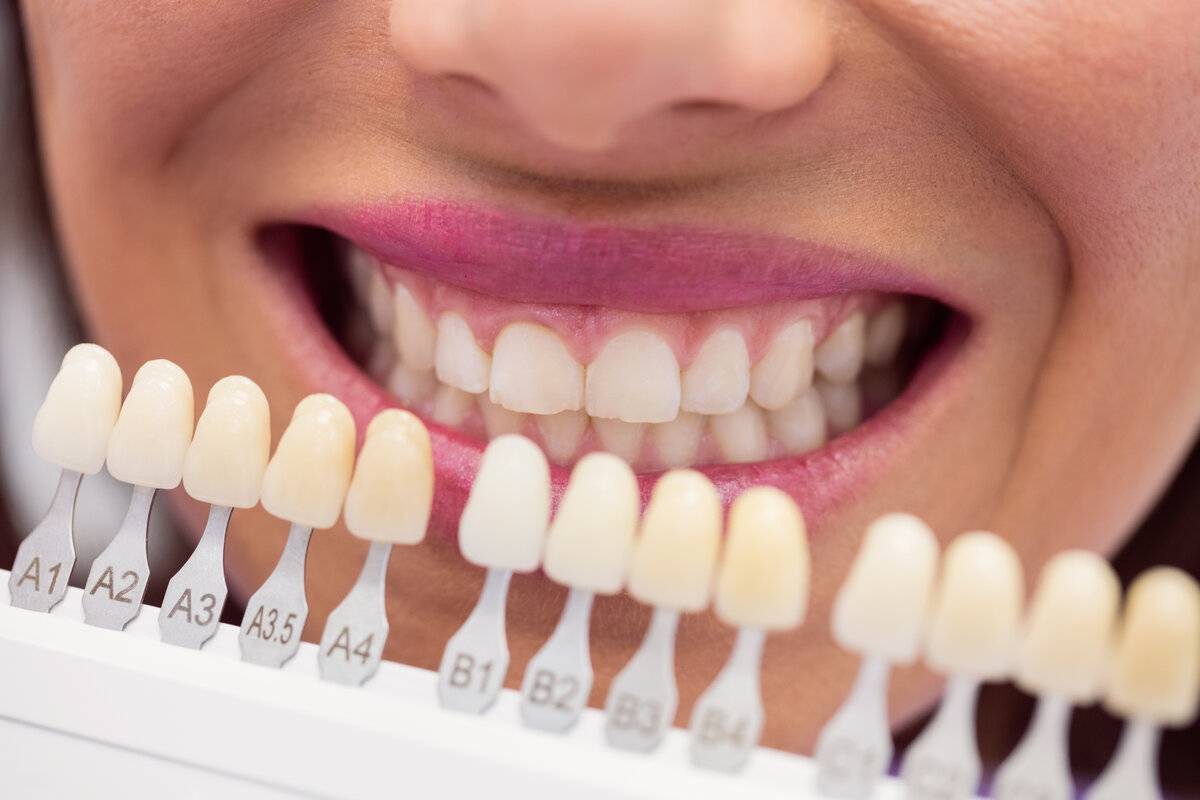Maintaining a healthy, radiant smile not only contributes to our physical appearance, but also plays a vital role in our overall health. One of the most common questions we ask ourselves is how often we should go to the dentist for a dental check-up.
At Medident we want to explain the importance of regular dental check-ups and provide you with recommendations based on best practices. Today we tell you why scheduling regular appointments with your dentist can make a difference to your long-term oral health.
Factors that influence the frequency of dental visits
Visiting the dentist may be more necessary depending on a number of factors, such as age, medical history, eating habits and oral hygiene, we explain:
Age
Age is a determining factor in the frequency of dental visits. Children at an early age require more regular dental care, as they are experiencing the eruption of primary teeth and the formation of their tooth structure. It is recommended that children begin visiting the dentist as soon as their first tooth appears, usually around 6 months of age. As children get older, regular dental visits allow the dentist to monitor the development of permanent teeth, correct alignment problems and educate about proper oral hygiene.
For adults, the frequency of dental visits may vary depending on the state of their dental and general health. Generally, a follow-up visit every six months is recommended for a professional cleaning, oral health assessment and early detection of problems such as cavities, periodontal disease or other dental disorders. However, some people may require more frequent visits due to underlying medical conditions or dental treatments they may have ongoing.
Medical history
Some medical conditions, such as diabetes or cardiovascular disease, may increase the risk of dental problems, such as gum disease. In these cases, more frequent visits to the dentist may be recommended for more rigorous monitoring and treatment.
In addition, certain medications and medical treatments, such as radiotherapy or chemotherapy, can have side effects on oral health. In these situations, it is essential to maintain open communication with the dentist and follow his or her recommendations on the frequency of visits to monitor and prevent possible complications.
Oral hygiene and dietary habits
Those who maintain a good oral care routine, including proper twice-daily brushing, flossing and mouthwash, can reduce the risk of dental problems. However, those with poor oral hygiene or who have a diet high in sugars and acidic foods may be more likely to develop cavities, gum disease or other oral disorders. In these cases, it is recommended to visit the dentist more regularly for guidance on brushing techniques, professional cleaning and dietary advice to improve the situation.
Benefits of regular dental visits
The importance of going to the dentist lies mainly in the prevention of dental problems, saving headaches and the costs of more complex treatments in the future if the disease worsens:
Prevention of dental problems and diseases
Regular visits to the dentist play a crucial role in prevention. During these visits, we dentists perform a comprehensive oral health assessment, including early detection of cavities, gum disease and other dental disorders.
We also perform professional cleanings to remove plaque and tartar, reducing the risk of dental problems. Early detection and timely treatment of these conditions can prevent serious complications and costly procedures in the future.
Maintaining a healthy and aesthetically pleasing smile
Regular dental visits help maintain a healthy and aesthetic smile. During these appointments, dentists perform a thorough cleaning to remove stains, plaque and tartar that cannot be removed by daily brushing.
In addition, we can perform cosmetic treatments such as teeth whitening, which improve the appearance of teeth and self-confidence. Maintaining a healthy and aesthetic smile not only has a positive impact on physical appearance, but also on self-esteem and quality of life.
Long-term savings on expensive dental treatments
Regular dental check-ups can generate significant long-term savings on expensive dental treatment. By having regular check-ups, dental problems can be detected at an early stage, making it easier to treat them before they become more complex and costly.
On the other hand, dentists can also give you recommendations on oral hygiene habits, healthy diets and preventive care specific to each case.
Warning signs that indicate the need for an immediate dental check-up
When certain warning signs are present, it is key to have your teeth checked promptly. These signs can be indicative of dental problems that require professional attention, some of them are:
Pain or discomfort in teeth or gums
Pain or discomfort in your teeth or gums can be a sign of a variety of dental problems, such as tooth decay, infection or gum disease. If you experience persistent pain, tenderness when biting or pressing on your teeth, it is important to seek immediate dental care. These symptoms could indicate the presence of infection or damage to dental tissues, and your dentist will be able to assess the situation and recommend appropriate treatment.
Bleeding gums when brushing and flossing
If your gums bleed when you brush or floss, it is a sign of gum inflammation, known as gingivitis. Gingivitis is caused by plaque build-up and if not treated early, can progress to more serious periodontal disease.
Visit your dentist immediately to receive an accurate diagnosis and a treatment plan that reverses gingivitis and is able to prevent further complications.
Tooth sensitivity to heat, cold or sweets
Extreme sensitivity may indicate the presence of worn tooth enamel, gum recession or tooth decay. These problems make teeth more sensitive to temperature changes or certain foods. If you experience persistent tooth sensitivity, it is important to schedule a dental check-up to determine the cause and receive appropriate treatment. Your dentist may recommend specific oral care techniques, desensitising products or treatments to protect sensitive teeth.
Persistent bad breath or bad taste in the mouth
Conclusions
Persistent bad breath or an unpleasant taste in the mouth can be a sign of dental problems, such as a build-up of bacteria on the tongue, tooth decay, gum disease or infection. These conditions can lead to a bad smell or taste in the mouth that doesn’t go away even after brushing. If you experience these symptoms, a consultation with a dentist is recommended to determine the cause and receive appropriate treatment.
Regular visits to the dentist offer numerous benefits, including preventing dental diseases and conditions, maintaining a healthy and aesthetically pleasing smile and saving on costly treatments in the long run. In addition, by visiting the dentist regularly, potential warning signs can be identified early, allowing any problems to be addressed immediately and effectively.
At Medident we are experts in quality dental care. Don’t wait for dental problems to get worse, schedule your appointment with us today! Our team will be happy to assist you, resolve your concerns and provide you with the right treatment to keep your smile radiant and your oral health in optimal condition. Don’t let time pass, take control of your dental health and give us a call!









